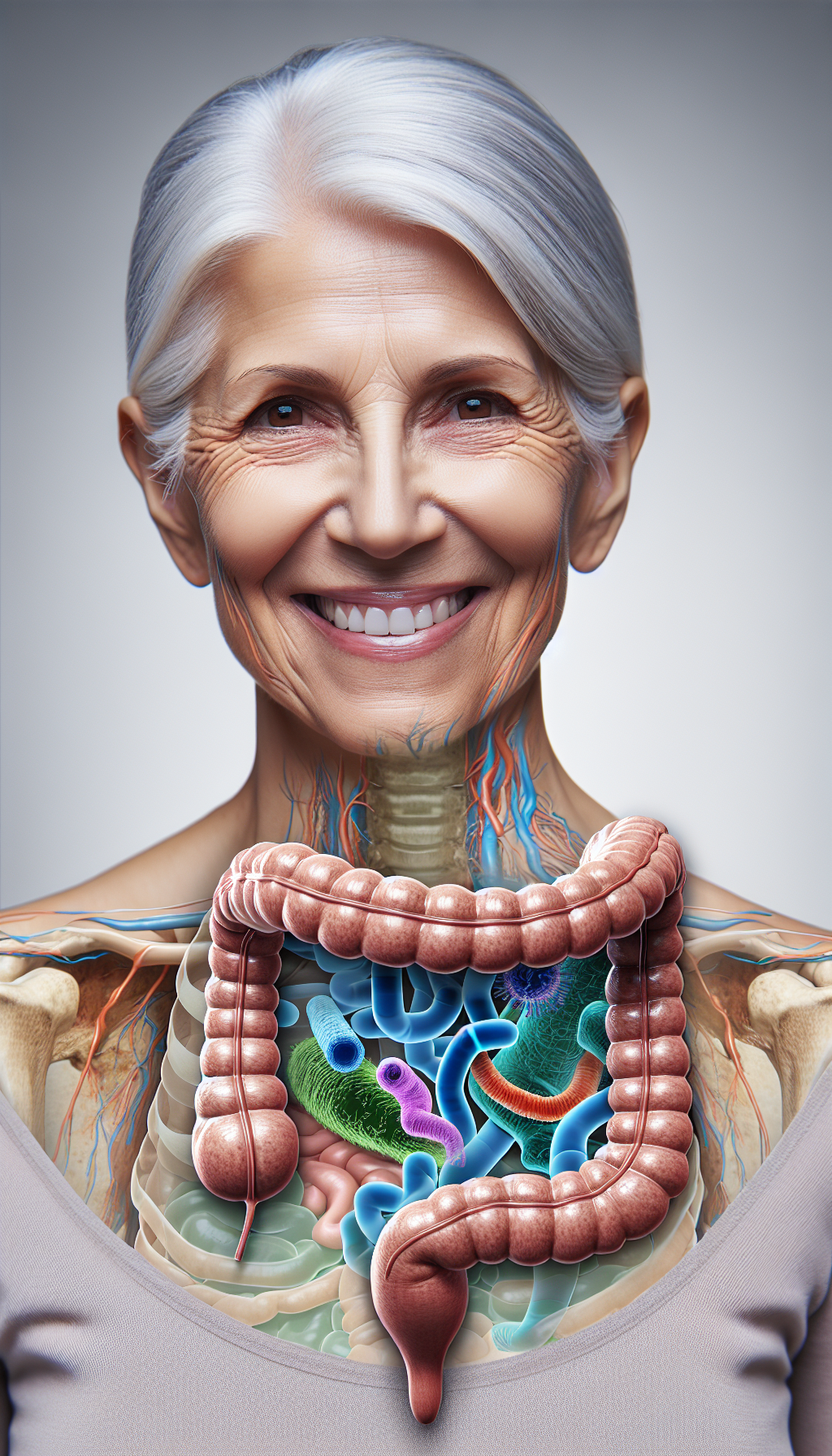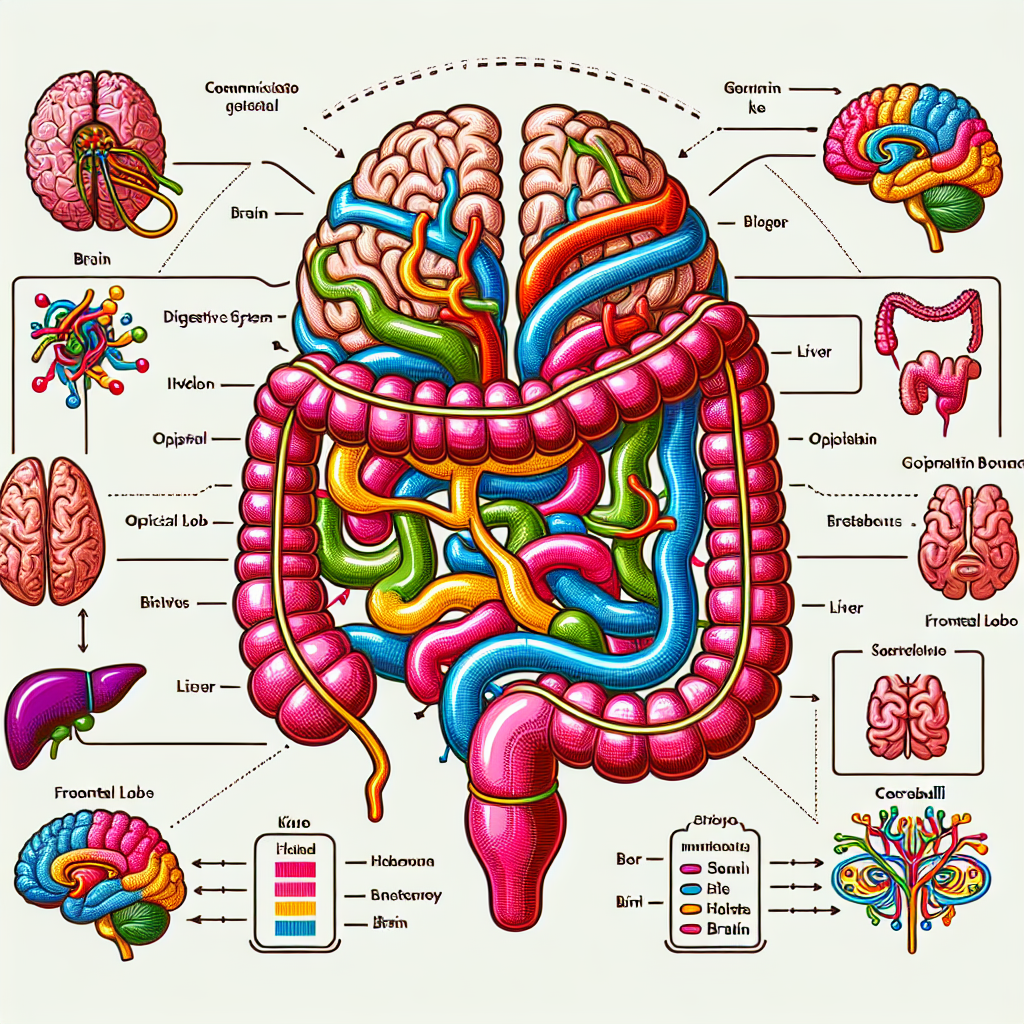As we venture through the march of time, our body undergoes numerous transformations, and our digestive system is no exception. Aging affects every facet of our physiology, including the diverse community of microbes residing within our gut, known as the gut microbiota. These microscopic inhabitants play a pivotal role in our overall health, influencing digestion, immunity, and even mental well-being. In this comprehensive exploration, we will delve into the intricate effects of aging on gut microbiota and how these changes can impact our life.
The Gut Microbiota: A Brief Overview
Before we examine the impact of aging, it’s critical to understand the gut microbiota’s role in our health. This ecosystem consists of bacteria, viruses, fungi, and other microorganisms that reside primarily in the large intestine. These microbes aid in the breakdown of food, synthesize essential nutrients, and form a defensive line against pathogenic invaders. The gut microbiota also plays a key role in modulating the immune system and has been linked to various health conditions, from digestive health to cardiovascular and brain health.
The Aging Gut Microbiota
As we age, the diversity of the gut microbiota tends to decline. This reduction in microbial variety can disrupt the delicate balance within the gut ecosystem, leading to a host of potential health issues. The reasons behind these changes are multifaceted, involving factors like altered dietary habits, decreased mobility, and the cumulative effect of lifelong exposures to environmental factors and medications.
Dietary Shifts
One of the most significant factors influencing gut microbiota in the elderly is changes in diet. Older adults may experience a decrease in appetite and alterations in taste and smell, which can lead to less varied and less nutritious food intake. A diet lacking in fiber and rich in processed foods can adversely affect the microbiota, leading to decreased microbial diversity and an increase in harmful bacteria. Dietary fiber is particularly crucial for maintaining a healthy gut microbiome.
Immune System Changes
Aging is associated with a decline in immune function, a phenomenon known as immunosenescence. This can affect the gut microbiota’s ability to interact with the host’s immune system, potentially leading to increased inflammation and susceptibility to infections. The gut microbiota and the immune system engage in a bidirectional relationship, each influencing the health and functionality of the other.
Medication Use
The frequent use of medications, such as antibiotics, in the elderly can have profound effects on gut microbiota. Antibiotics can disrupt the normal microbial community, leading to a decrease in beneficial bacteria and an increase in antibiotic-resistant strains. This can result in a condition known as dysbiosis, contributing to gastrointestinal issues and broader health complications. The careful use of medication & supplements is essential for preserving gut health.
Physiological Alterations
Aging also brings about physiological changes in the digestive system, such as alterations in gastric acid production and motility, which can influence the composition of gut microbiota. A decline in gastric acid can make the gut more hospitable to potentially harmful bacteria, while changes in motility may affect the transit time of food and waste, impacting the gut environment.
The Implications of Altered Gut Microbiota
The changes in gut microbiota associated with aging can have several implications for health:
-
Digestive Disorders: An imbalance in gut bacteria can contribute to conditions such as irritable bowel syndrome (IBS) and inflammatory bowel disease (IBD). These conditions are often managed through dietary adjustments, such as the Low FODMAP Diet, which can alleviate symptoms for some individuals.
-
Nutrient Absorption: The gut microbiota is involved in the fermentation of dietary fibers and the production of short-chain fatty acids (SCFAs), which are crucial for the health of colon cells. Aging can affect the microbiota’s ability to produce these compounds, potentially impacting nutrient absorption and overall health.
-
Mental Health: There is a growing body of evidence supporting the gut-brain axis, suggesting that changes in gut microbiota can affect mental health, including mood and cognitive function. Research has shown a connection between gut health and conditions like depression and anxiety.
Strategies to Support Aging Gut Microbiota
Despite the challenges posed by aging, there are strategies to support and improve the health of the gut microbiota:
-
Dietary Interventions: Consuming a diet rich in fibers, fermented foods, and a variety of plant-based foods can help maintain a diverse and healthy gut microbiota. Foods such as yogurt, kefir, and sauerkraut are excellent sources of probiotics, while prebiotic foods like garlic, onions, and bananas provide the necessary fuel for beneficial bacteria.
-
Lifestyle Modifications: Regular physical activity has been shown to have a positive impact on gut microbiota diversity. Additionally, stress management techniques such as mindfulness and yoga can also influence gut health.
-
Supplementation: Probiotics and prebiotics supplements can be a useful adjunct to diet, particularly for individuals with limited dietary options. However, it’s essential to consult with a healthcare provider to determine the most appropriate supplement for your needs.
-
Medical Interventions: For some conditions, medical interventions, such as fecal microbiota transplantation (FMT), may be considered to restore a healthy gut microbiota. This is still an emerging area of medicine and should only be performed under strict medical supervision.
Conclusion
The effects of aging on gut microbiota are complex and far-reaching, with implications for digestive health, immunity, and mental well-being. By understanding the changes that occur and implementing supportive strategies, we can help mitigate the adverse effects and promote a healthy, balanced gut microbiota throughout the golden years.
In closing, maintaining a robust gut microbiota is crucial for aging individuals. It requires a holistic approach, integrating diet, lifestyle, and medical care. By focusing on these areas, we can enhance overall health and quality of life, ensuring that our microbiota remains a strong ally in our health journey.



